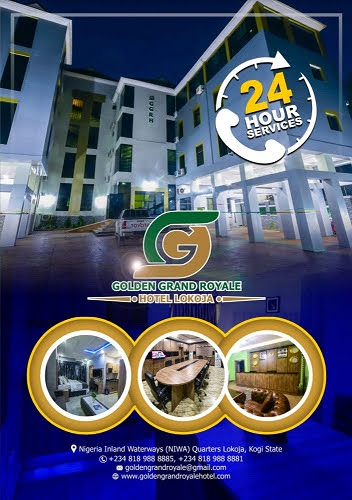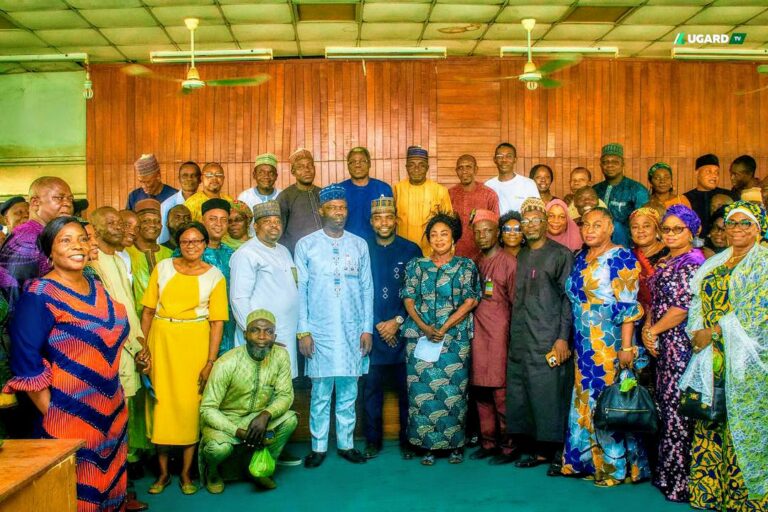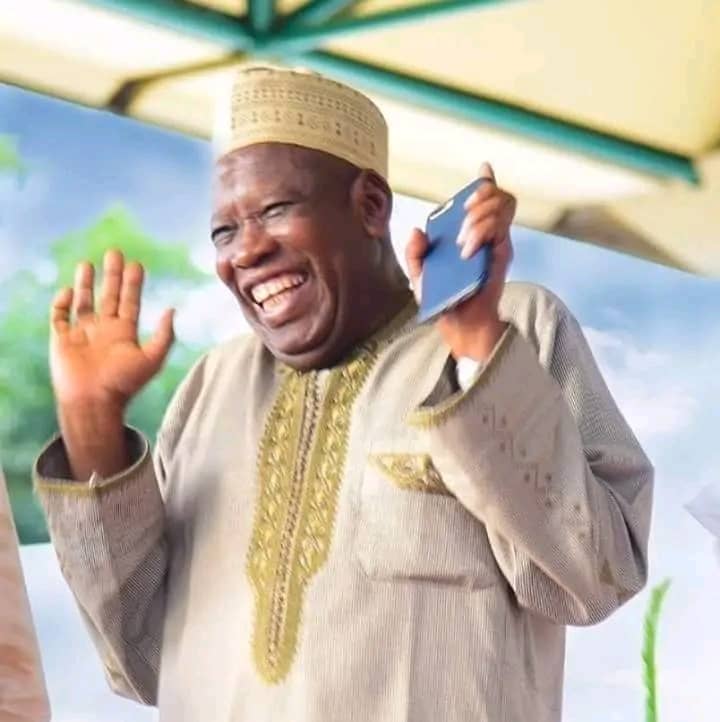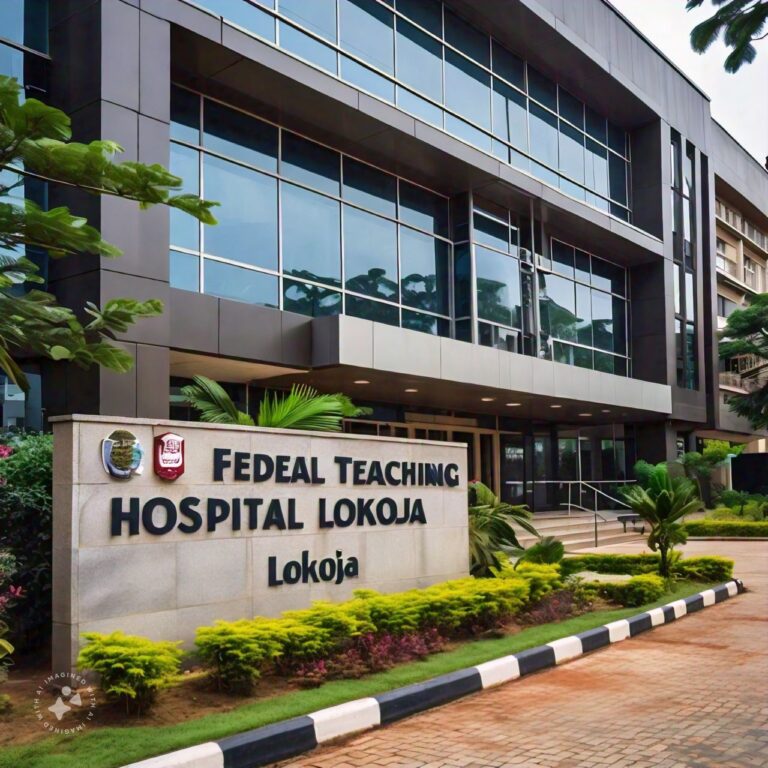Warning: Attempt to read property "post_excerpt" on null in /home/kogiflam/public_html/wp-content/themes/morenews/single.php on line 55


Kogiflame
By Tunde Olusunle
While I was a young boy, the military had a lot of fascination for me. As Johnson Aguiyi-Ironsi, Yakubu Gowon, Murtala Mohammed and Olusegun Obasanjo took their turns at the leadership of Nigeria, after various coups and counter putschs, I had this belief that military governance had come to stay for good. I thus aspired to join the institution, make my mark and ascend to the topmost heights of the profession.
An opportunity indeed provided itself in 1980, when I was given a place in the 28th regular combatants’ programme. My name was published in the dailies as one of those to participate in the screening and training exercise at the Nigerian Defence Academy, (NDA), Kaduna.
Understandably, there were loud objections from my family, notably from my mother, who couldn’t imagine her only son enlisting in a profession which could possibly put him in the front of the fire of battle someday. You couldn’t blame Mama by the way, because she witnessed the Nigerian Civil War of 1967 to January 1970, first hand as a nursing mother, in Kaduna, where some of my siblings and I were born.
She vividly recalls those days when she had to cross to the south of River Kaduna, holding the hands of some of us, and carrying the baby at the time on her back, in obeisance to my father’s counsel, whenever “settlers” in Kaduna were threatened by the war. My father was more amenable. He desired that I had a university degree in my pouch, before venturing, possibly, into the martial vocation or any profession of my choice.
Sequel to the completion of the mandatory post-graduation National Youth Service Corps, (NYSC), after my undergraduate degree, I rekindled my affection for the military. One of my former professors, Tayo Peter Olafioye, had a relationship with a top military officer, Charles Bebeye Ndiomu, a Major General, who was Director-General, (DG), of the National Institute for Policy and Strategic Studies, (NIPSS), at the time. Olafioye graciously gave me a note to Ndiomu, if that could enable my military dream in any way.
And so, off I went to Kuru, Jos, Plateau State, late 1986, from Ponyan in present day Yagba East local government area, where I was a school teacher at the time. I was cleared at all security intersections in the Institute, en route the office of the DG. I was received by a young army officer, who was the aide-de-camp, (ADC), to Ndiomu. It was a busy day for the big man as he shuttled from one meeting, to some presentation, to another reception for a visiting dignitary. I only got to see him at the approach of dusk by which time he was worn out and fatigued himself. He would try, he told me, assuring he will reach out to me through my professor.
I returned to the ADC’s office on my way out, to inform him I was through with the DG, and would head out to the motor park to catch a vehicle to Kaduna, on my homeward trip to the old Kwara State. The ADC, who donned two stars on his shoulders, checked his wrist watch and looked up to me.
“It’s late to travel at this time. Must you get to Kaduna this night?” I told him I had a constrained permit from my employers to undertake the trip to Kuru and needed to get back to work, promptly. He was concerned: “But you had a long day waiting for Oga here. You should be hungry.” Before I could reply him, he called out to his orderly. “Tell Oga I’ve dashed out to my apartment to get something, if he asks after me. I’m taking this man to get something to eat”
We got into his car, a Volkswagen Beetle at the time, and he navigated the eye-catching campus of NIPPS, to his own address. He detailed his batman to quickly fix some food for me, because I had to travel that evening. While I ate my meal quietly, the sprightly young military officer reached for the intercom in his place and called the transport department of NIPSS. He requested for a vehicle to take the “guest of the DG” to the garage. The vehicle arrived as I finished my meal, the ADC handed me over to the driver and bade me a safe trip.
I returned to Ponyan and narrated my experience on my trip, to my colleagues, all young men who found themselves in the teaching profession, as a step-board to our preferred careers. In the course of my briefing over sips of palmwine, one of my listeners interjected: “The ADC you met in General Ndiomu’s office in Kuru, is Lieutenant Femi Adeoye.
He is your brother from Isanlu. You don’t know him?” I answered in the negative. “I never lived in my hometown,” I told my audience. “There has never been a meeting point between the young military officer and I.” More importantly, I told my friends that the Lt. Femi Adeoye I met, came to me as a cosmopolitan personality, who showed me respect and concern, and who would treat everyone he encountered, with such consideration, irrespective of where they came from.
There were no telephone facilities, land or mobile, in Ponyan to call Adeoye to appreciate his large-hearted reception, in 1986. I wrote a “thank you” letter though, which I sent through the post office in Isanlu, one of the largest communities in the Yagba strand of Okunland. His name, however, stuck like glue to my consciousness. Almost about 10 years after, Adeoye’s name was a constant in the news, in Lagos State.
I had left Ponyan to pursue a career in journalism and was a Member of the Editorial Board of the *Daily Times* in Lagos. Adeoye, now a Major, was Chairman of the Taskforce on Environmental Sanitation and Special Offences, under the administration of Olagunsoye Oyinlola, an army Colonel, the Military Administrator of the State.
Adeoye’s taskforce had omnibus powers to arrest “environmental offenders” of various shades, including people caught “wandering,” according to the job description of the outfit. Not a few journalists commuting late at night in the line of duty were taken in and had to be identified and bailed by their colleagues. I was eager to meet Adeoye again. I felt I owed him appreciation for being an unusual soldier in my view, during that our singular encounter.
Coincidentally, Tunde Ipinmisho, my senior colleague in *Daily Times* who equally had a preexisting relationship with Adeoye, also desired to see him again. Ipinmisho and I traced his office in Lagos together. We met him at the centre of activities, errant characters seated on the floor of what was supposed to be a lounge adjoining his office. He marvelled at my sense of recollection, and what he thought was fast becoming obsolete in our value system, my committed effort to locate him to express appreciation for what he considered an intangible favour. We all chatted briefly in our indigenous *Okun* dialects, cracked a few jokes, shook hands and left him to continue his work.
Thereafter, we all went our different ways and I didn’t see Adeoye again, until the aftermath of Nigeria’s return to democratic governance in 1999. He had ascended the rungs of the military hierarchy and become a Colonel.
He was a student at the National War College, (NWC), while I was a presidential aide to President Olusegun Obasanjo. Adeoye’s accommodation was being contested by someone else, while federal government houses were being monetized, preference accorded sitting occupants. This was sometime in 2006 or thereabouts.
He reached out to me and I promptly fired a letter to the Minister for Federal Capital Territory, (MFCT), Nasir El Rufai, who was in-charge of the nation’s capitol, between 2003 and 2007, requesting that justice, equity and fairplay be enthroned in the adjudication of the issue. I guess there were “longer legs” in the system, so all we received from the Minister’s office was a polite acknowledged signed by his Chief of Staff, explaining why we lost the house. Nonetheless, Adeoye and I have remained very close ever since.
Adeoye retired from the Nigerian Army as a Brigadier General in the Amoured Corps, in 2015. He set up a security solutions outfit in Abuja, an enterprise he runs simultaneously with his current secular calling as a clergyman and Pastor in one of the parishes of the Redeemed Christian Church of God, (RCCG), in Abuja. The Abuja jurisdiction of the RCCG is administratively known as the “Region 10 Family,” and encompasses the entire northern zone of the mission. It is ably led by Pastor Ezekiel Odeyemi, an Assistant General Overseer, (AGO).
Most people who knew him in his earlier years as a rugged, thoroughbred officer, with his famous jungle headgear, camouflage uniforms and gleaming black boots, find it very difficult to pitch his profile as a soldier, which is indelibly etched on their minds, side by side with his current episcopal calling.
To be sure, the RCCG encourages a formal dress code for its ministers, much in the manner of corporate business entities. Adeoye was one of the 45 senior officers of the Armoured Corps of the Nigerian Army, who were “pulled out,” Saturday March 12, 2022, at a colourful ceremony at the primordial home base of the Corps in Bauchi. This was in recognition of their selfless, meritorious services to the fatherland. The recent pulling out exercise, was the first in nearly a decade in the Armoured Corps.
For those on Adeoye’s telephone contact list, they are most likely to receive his spiritual exhortations, every morning. The witty and humorous personality that he is, don’t be surprised to receive the craziest and funniest jokes from him, as he attempts to help us all make light of our despairing predicament under the incumbent dispensation, and stave off probable disillusionment and depression. This God’s own General, has a way of targeting your ribs.
Simon Olufemi Adeoye was born September 3, 1956 in Isanlu, Yagba East LGA. He attended ECWA Primary School, Isanlu and St. Michael’s Catholic Primary School, Ogidi, Ijumu LGA, between 1966 and 1971. He proceeded to St. Augustine’s College, Kabba, where he obtained his West African School Certificate, O’Level certificate in 1976. He was at the NDA from 1978 to 1981, from where he was commissioned into the Nigerian Armoured Corps. He attended several professional courses at home and abroad.
Adeoye served in various military positions, including: Acting Brigade Commander, 22 Brigade, Ilorin; General Staff Officer 1, Bakassi Operation; Directing Staff, Command and Staff College and Staff Officer, Headquarters, Nigerian Army Armoured Corps. He was Director, Army Records Office, Lokoja; Director Plans and Operations, Defence Headquarters and Chief of Staff, Operation Save Haven, Jos. He garnered several honours and awards in the course of his military career, notably: Pass Staff College, Psc(+); Meritorious Service Star, (MSS); Distinguished Service Star (DSS); Operation Medal, Bakassi (Operation Harmony) and Fellow of the National War College (FWC), Nigeria, among others. He is also a Fellow at the Institute of Management Consultants, (FIMC); Africa Institute of Public Administration (FAIPA) and the Nigeria Army Resource Centre, Abuja, respectively.
He has visited several countries across the world, particularly in the Americas, Africa, Asia, Europe and South America. He is at present, Member of the Board of Supergreen Security Nigeria Ltd, and Managing Director, Sapphire Security Consulting Ltd, both in Abuja. He enjoys travelling, meeting people, information gathering, knowledge acquisition and sports, and is happily married to Florence Omolara Adeoye, an attorney. The union is blessed with beautiful children.
Adeoye may be a retired senior army officer. Nonetheless, he remains a serving and substantive grandfather whose second daughter, Esther Ibukun-Oluwa got married in January this year, a few years after her elder sister. The quality and diversity of attendees at the event, was evidence of a man who has cultivated friendships and built bridges over time. He joins the conference of senior military officers from Isanlu who have made the cut of General, across the services including: Samuel Teidi (of blessed memory); Matthew Teidi and Idowu Ilemore, both retired naval Commodores.
*Tunde Olusunle, PhD, poet, journalist, author and scholar, is a Member of the Nigerian Guild of Editors, (NGE)




